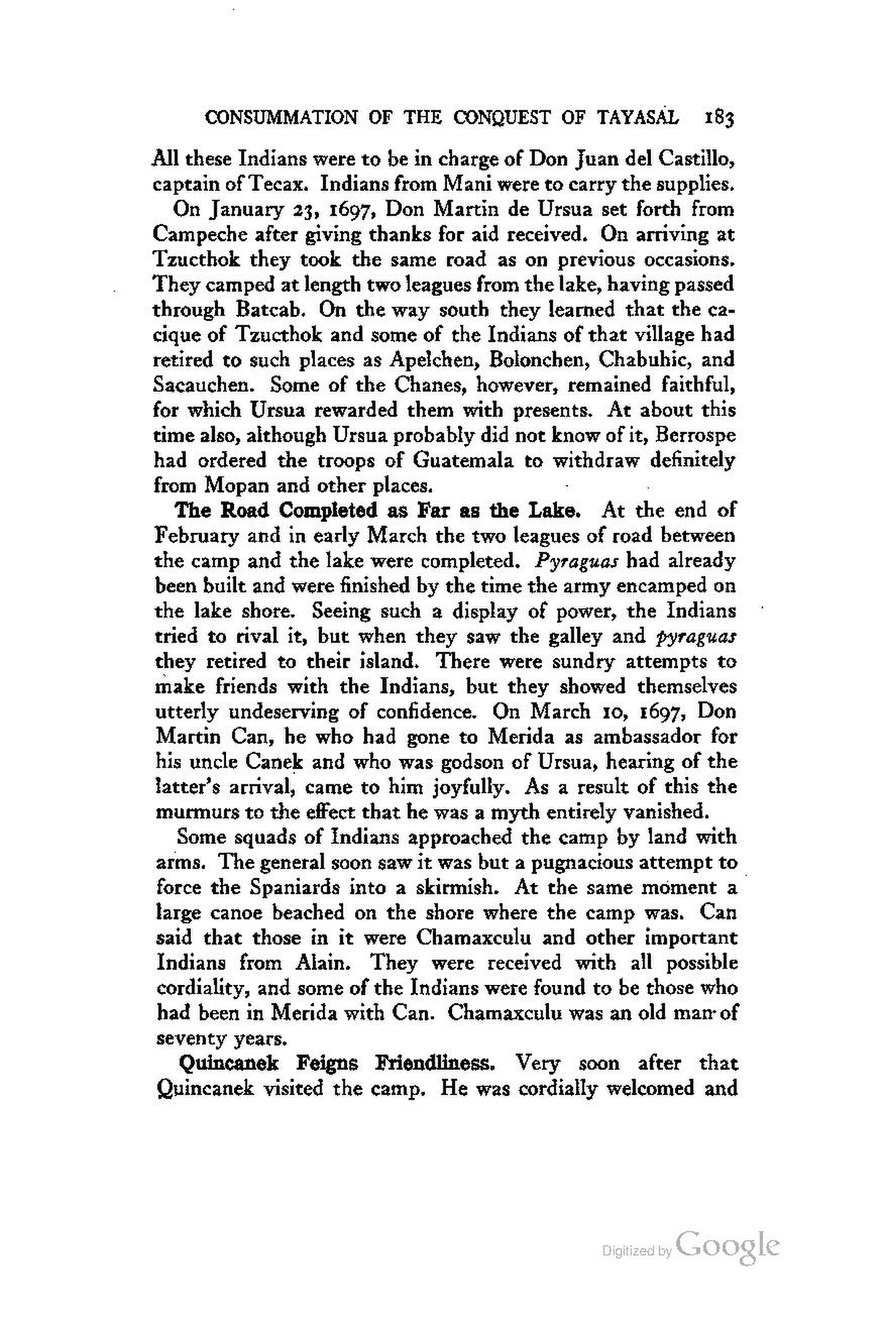All these Indians were to be in charge of Don Juan del Castillo, captain of Tecax. Indians from Mani were to carry the supplies.
On January 23, 1697, Don Martin de Ursua set forth from Campeche after giving thanks for aid received. On arriving at Tzucthok they took the same road as on previous occasions. They camped at length two leagues from the lake, having passed through Batcab. On the way south they learned that the cacique of Tzucthok and some of the Indians of that village had retired to such places as Apelchen, Bolonchen, Chabuhic, and Sacauchen. Some of the Chanes, however, remained faithful, for which Ursua rewarded them with presents. At about this time also, although Ursua probably did not know of it, Berrospe had ordered the troops of Guatemala to withdraw definitely from Mopan and other places.
The Road Completed as Far as the Lake. At the end of February and in early March the two leagues of road between the camp and the lake were completed. Pyraguas had already been built and were finished by the time the army encamped on the lake shore. Seeing such a display of power, the Indians tried to rival it, but when they saw the galley and pyraguas they retired to their island. There were sundry attempts to make friends with the Indians, but they showed themselves utterly undeserving of confidence. On March 10, 1697, Don Martin Can, he who had gone to Merida as ambassador for his uncle Canek and who was godson of Ursua, hearing of the latter's arrival, came to him joyfully. As a result of this the murmurs to the effect that he was a myth entirely vanished.
Some squads of Indians approached the camp by land with arms. The general soon saw it was but a pugnacious attempt to force the Spaniards into a skirmish. At the same moment a large canoe beached on the shore where the camp was. Can said that those in it were Chamaxculu and other important Indians from Alain. They were received with all possible cordiality, and some of the Indians were found to be those who had been in Merida with Can. Chamaxculu was an old man of seventy years.
Quincanek Feigns Friendliness. Very soon after that Quincanek visited the camp. He was cordially welcomed and
